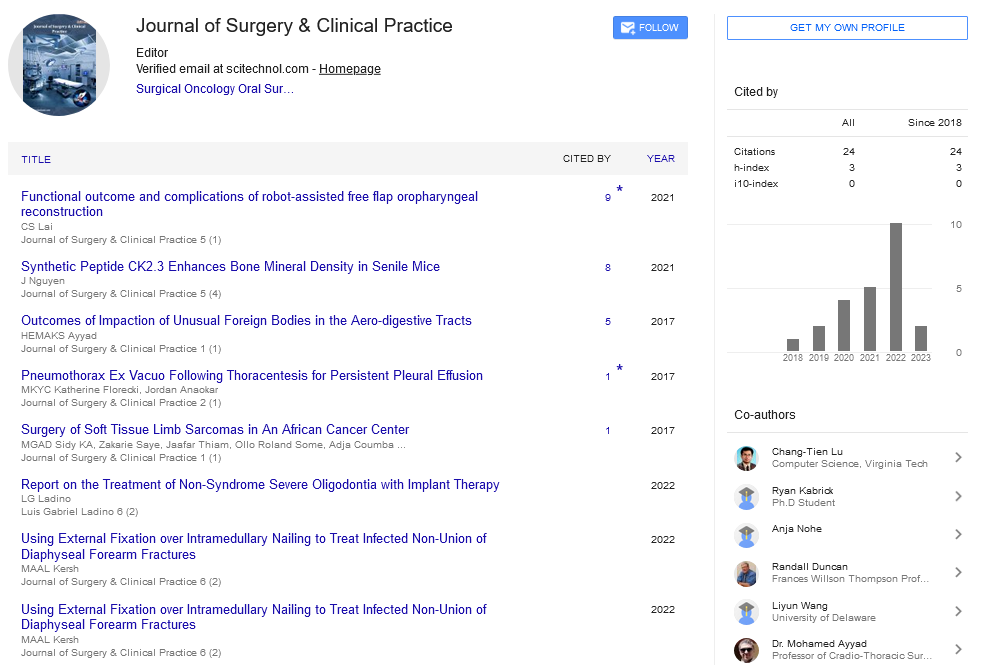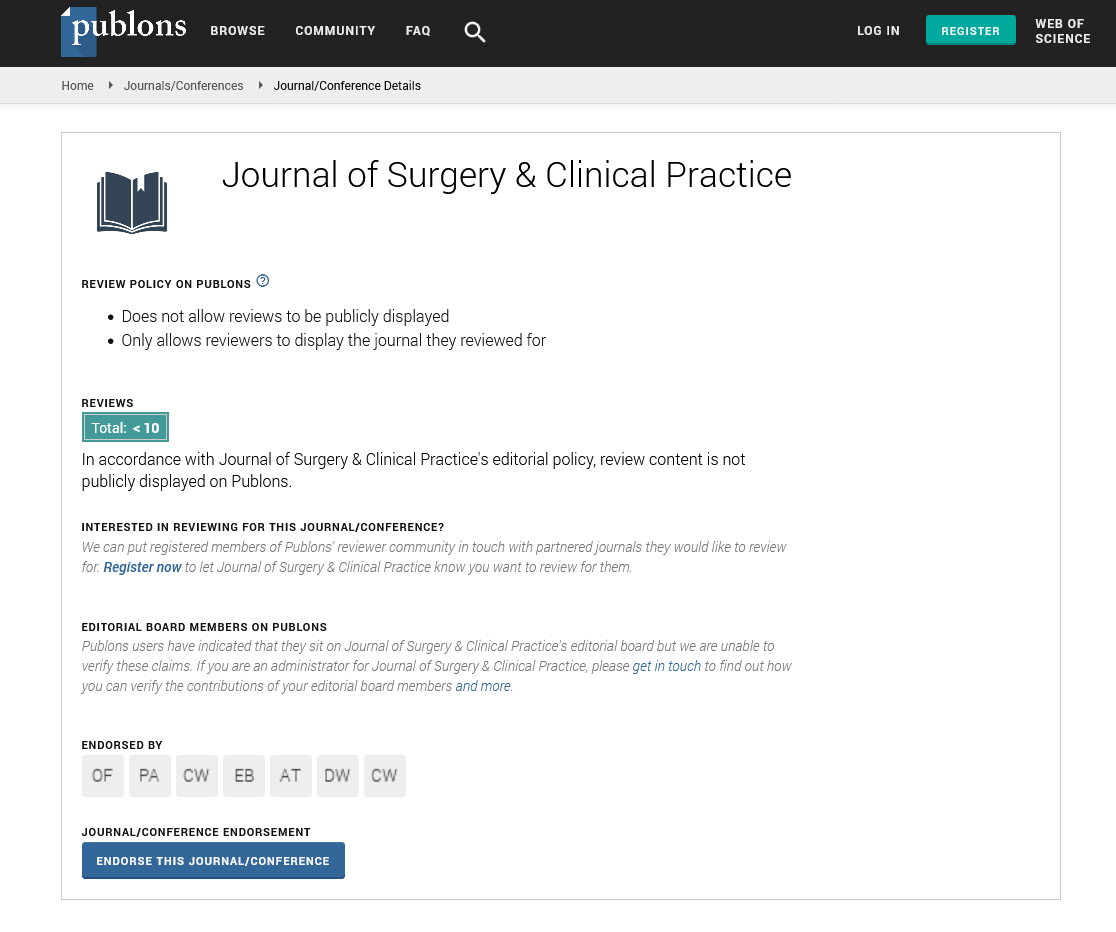Perspective, J Surg Clin Prac Vol: 7 Issue: 1
Current Trends in Gastrointestinal Surgery for Inflammatory Bowel Disease
Mariana Almeida*
Department of Surgery, Yale School of Medicine, New Haven, United States of America
*Corresponding Author: Mariana Almeida
Department of Surgery, Yale School of
Medicine, New Haven, United States of America
E-mail: mariana@surg.edu
Received date: 22 February, 2023, Manuscript No. JSCP-23-95367;
Editor assigned date: 27 February, 2023, Pre QC No. JSCP-23-95367(PQ);
Reviewed date: 15 March, 2023, QC No. JSCP-23-95367;
Revised date: 22 March, 2023, Manuscript No: JSCP-23-95367(R);
Published date: 29 March, 2023, DOI: 10.35248/JSCP.100372.
Citation: Almeida M (2023) Current Trends in Gastrointestinal Surgery for Inflammatory Bowel Disease. J Surg Clin Prac 7:1.
Keywords: Surgery
Description
Inflammatory Bowel Disease (IBD) is a chronic disorder that affects the digestive tract. It is characterized by inflammation of the gastrointestinal tract, which can lead to a variety of symptoms, including diarrhea, abdominal pain, and rectal bleeding. While there are several different types of IBD, the two most common forms are Crohn's disease and ulcerative colitis. While medication and lifestyle changes can often be effective in managing the symptoms of IBD, some patients may require surgical intervention to alleviate their symptoms and improve their quality of life.
Gastrointestinal surgery for IBD is generally considered when medical treatments have failed to control symptoms or complications have arisen. The most common surgical procedures for IBD are colectomy and Ileal Pouch-Anal Anastomosis (IPAA). A colectomy is a surgical procedure that involves the removal of the colon. An IPAA involves the removal of the colon and rectum and the creation of a pouch from the end of the small intestine that is connected to the anus.
This allows for the elimination of waste from the body in a manner that is similar to normal bowel movements. The primary benefit of gastrointestinal surgery for IBD is the relief of symptoms. Patients who undergo these procedures typically experience a significant reduction in abdominal pain, diarrhea, and rectal bleeding. This can greatly improve their quality of life and allow them to resume normal activities. In addition, surgery can help to prevent the complications associated with IBD, such as bowel obstructions, fistulas, and abscesses.
Colectomy is typically performed in patients with ulcerative colitis who have failed to respond to medical treatments. It involves the removal of the colon and rectum and may be followed by a procedure to create an ileostomy. This involves producing a small opening in the abdomen through which waste can be eliminated from the body. The patient wears a special bag over the opening to collect the waste. While an ileostomy may be permanent, it is often temporary and can be reversed at a later date. IPAA is typically performed in patients with ulcerative colitis who have had their colon and rectum removed. It involves the creation of a pouch from the end of the small intestine that is connected to the anus. This allows for the elimination of waste from the body in a manner that is similar to normal bowel movements. Patients who undergo this procedure typically experience a significant improvement in their quality of life and a reduction in their symptoms. In addition, IPAA can help to prevent the complications associated with ulcerative colitis, such as bowel obstructions, fistulas, and abscesses. While gastrointestinal surgery for IBD is generally safe and effective, it does carry some risks. These risks include infection, bleeding, and bowel perforation. In addition, patients who undergo colectomy may require a temporary or permanent ileostomy, which can be challenging to manage. It is important for patients to discuss the risks and benefits of these procedures with their healthcare provider and to make an informed decision about whether surgery is the right option for them and to determine the best course of treatment for their individual needs.
 Spanish
Spanish  Chinese
Chinese  Russian
Russian  German
German  French
French  Japanese
Japanese  Portuguese
Portuguese  Hindi
Hindi 
